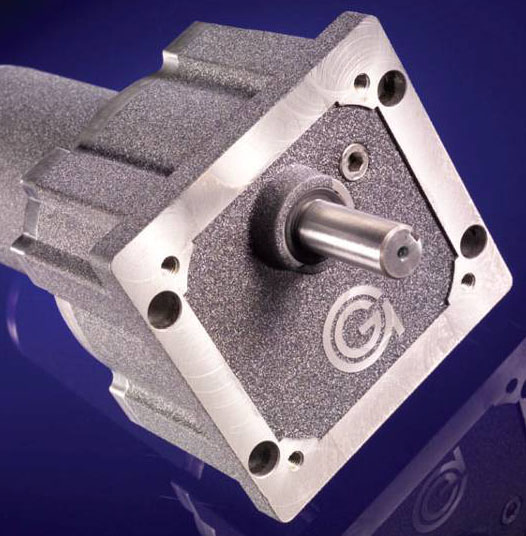Mobile:+86-311-808-126-83
Email:info@ydcastings.com
Understanding Impeller Pumps in Centrifugal Pump Applications and Their Advantages
Understanding Impeller Pumps The Heart of Centrifugal Pump Technology
Centrifugal pumps play a critical role in various industries, from water supply and wastewater treatment to chemical processing and manufacturing. At the core of these pumps lies the impeller, an essential component that is pivotal to the functioning of centrifugal pumps. Understanding the mechanics and advantages of impeller pumps is crucial for industries leveraging fluid transfer systems to enhance efficiency and reduce operational costs.
What is an Impeller Pump?
An impeller pump, often synonymous with a centrifugal pump, utilizes angular momentum to move fluids through the interaction of impellers and fluid. The impeller, a rotating component with vanes or blades, transfers kinetic energy to the fluid. As the impeller spins, it draws fluid into its center and flings it outward towards the pump's discharge, resulting in pressure and flow.
Components and Design of Impeller Pumps
The primary components of an impeller pump include the impeller, volute casing, intake, and discharge. The design and configuration of the impeller play a significant role in determining the pump's performance. There are various configurations of impellers, including open, semi-open, and closed designs, each serving different applications
1. Open Impellers These have no shroud, allowing for easier handling of solids and viscous fluids. They provide good flow rates but can suffer from efficiency losses and wear over time.
2. Semi-Open Impellers These feature one shroud and typically offer a balance of performance and efficiency while managing solids effectively.
3. Closed Impellers These have two shrouds that enclose the vanes, promoting higher efficiency. Closed impellers are ideal for clean fluids, as their design reduces turbulence and wear.
Choosing the right impeller design is crucial in optimizing the pump’s efficiency and extending its operational lifespan.
How Impeller Pumps Work
When the impeller rotates, it creates a low-pressure area at the center (eye) of the impeller, causing fluid from the reservoir to enter the pump. The liquid moves through the vanes and is expelled at high speed due to centrifugal force. The volute casing surrounding the impeller collects the high-velocity fluid and gradually expands it to convert the kinetic energy into pressure energy, which facilitates flow along the desired path.
impeller pump centrifugal

Due to this functioning principle, impeller pumps can efficiently handle various fluid types, ranging from clean water to aggressive chemicals, depending on the material composition and design specifics.
Advantages of Impeller Pumps
The popularity of impeller pumps stems from a multitude of benefits they offer
1. Efficiency Centrifugal pumps are generally highly efficient, enabling the movement of fluids with relatively low energy consumption.
2. Versatility With various impeller designs available, these pumps can be tailored to accommodate a wide range of fluids, including those with suspended solids.
3. Low Maintenance Compared to other pump types, such as positive displacement pumps, impeller pumps typically require less maintenance and have fewer moving parts, which translates to fewer wear-related issues.
4. Cost-Effectiveness The operational simplification and reduced maintenance overhead contribute to lower total ownership costs.
5. Continuous Flow Impeller pumps can provide a smooth, continuous flow, which is ideal for applications requiring steady fluid transfer.
Applications of Impeller Pumps
The applications for impeller pumps are vast. They are commonly found in municipal water treatment plants, agricultural irrigation systems, oil and gas industries for transporting fluids, and HVAC systems for circulation. In addition, their adaptability makes them suitable for various industrial processes, chemical manufacturing, and food processing sectors.
Conclusion
In summary, impeller pumps are a cornerstone of fluid handling technology, offering reliability, efficiency, and versatility. Their ability to handle various fluid types makes them invaluable across numerous industries. Understanding the design, operation, and benefits of impeller pumps helps engineers and operators make informed decisions, leading to enhanced system performance and operational sustainability. As technology advances, the impeller pump will continue to evolve, maintaining its status as an essential tool in fluid transfer applications.
-
Why Should You Invest in Superior Pump Castings for Your Equipment?NewsJun.09,2025
-
Unlock Performance Potential with Stainless Impellers and Aluminum End CapsNewsJun.09,2025
-
Revolutionize Your Machinery with Superior Cast Iron and Aluminum ComponentsNewsJun.09,2025
-
Revolutionize Fluid Dynamics with Premium Pump ComponentsNewsJun.09,2025
-
Optimizing Industrial Systems with Essential Valve ComponentsNewsJun.09,2025
-
Elevate Grid Efficiency with High-Precision Power CastingsNewsJun.09,2025











